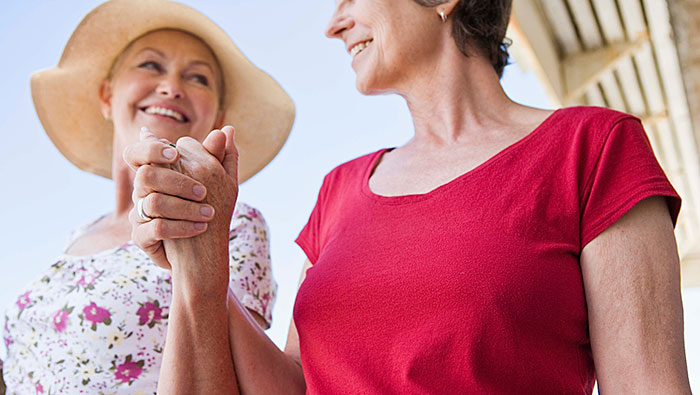Living With Heart Disease You're Not Alone

You walk into your doctor’s office for what you think is either a routine checkup or to address that nagging pain in your neck, jaw or back. Then it happens. “You have heart disease” — the words you never, not in a million years, thought you’d hear.
You’re not alone. You’ve just joined the ranks of more than 62.5 million American women who have heard the same diagnosis. Pause for a second and think about the size of that number.
What does your diagnosis mean?
No matter what you call it — heart disease, cardiovascular disease or coronary heart disease – it means there is a plaque buildup in the walls of your arteries. As the plaque builds, your arteries narrow, making it more difficult for blood to flow and creating a risk for heart attack or stroke. Women are also diagnosed with heart disease when an irregular heartbeat or heart valve problems are present.
What to do after your diagnosis
Realize that it’s OK to feel vulnerable.
Reach out to other women who share your diagnosis and start to build a personal support team. Know when you need to let go of some control and let others take care of you. It may be a struggle at first, but that fear and feeling helpless is normal.
Join support groups.
There’s no reason to cope with heart disease on your own. The American Heart Association’s Support Network is a great resource where you can ask questions, find information and connect with other people with the same condition.
You can connect with other women through the Go Red for Women #GoRedGetFit Facebook Group, a group of incredible survivors and women committed to making healthy lifestyle choices. Share your story, then find someone like you.
Believe in yourself.
Your diagnosis might create feelings of depression, anger and fear. It’s important to address those feelings and move forward. By believing in yourself and in your ability to beat this disease, you will be able to have a fulfilling life.





